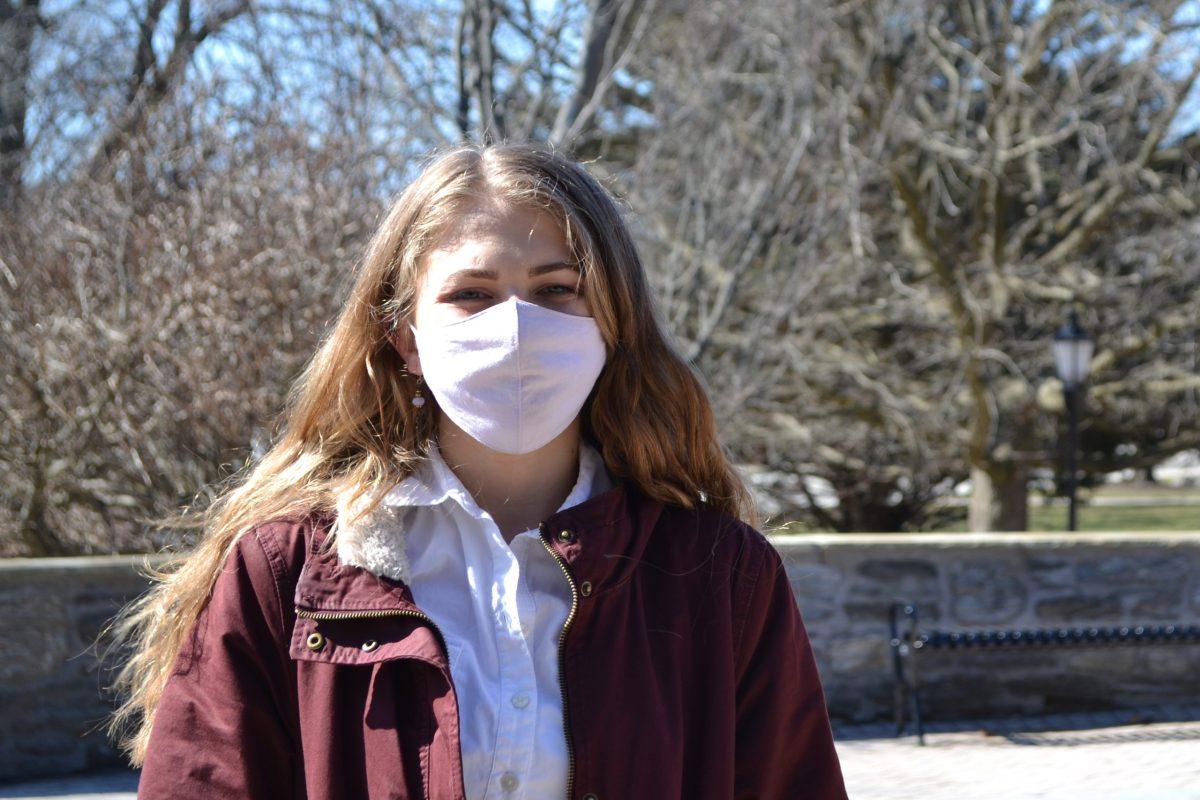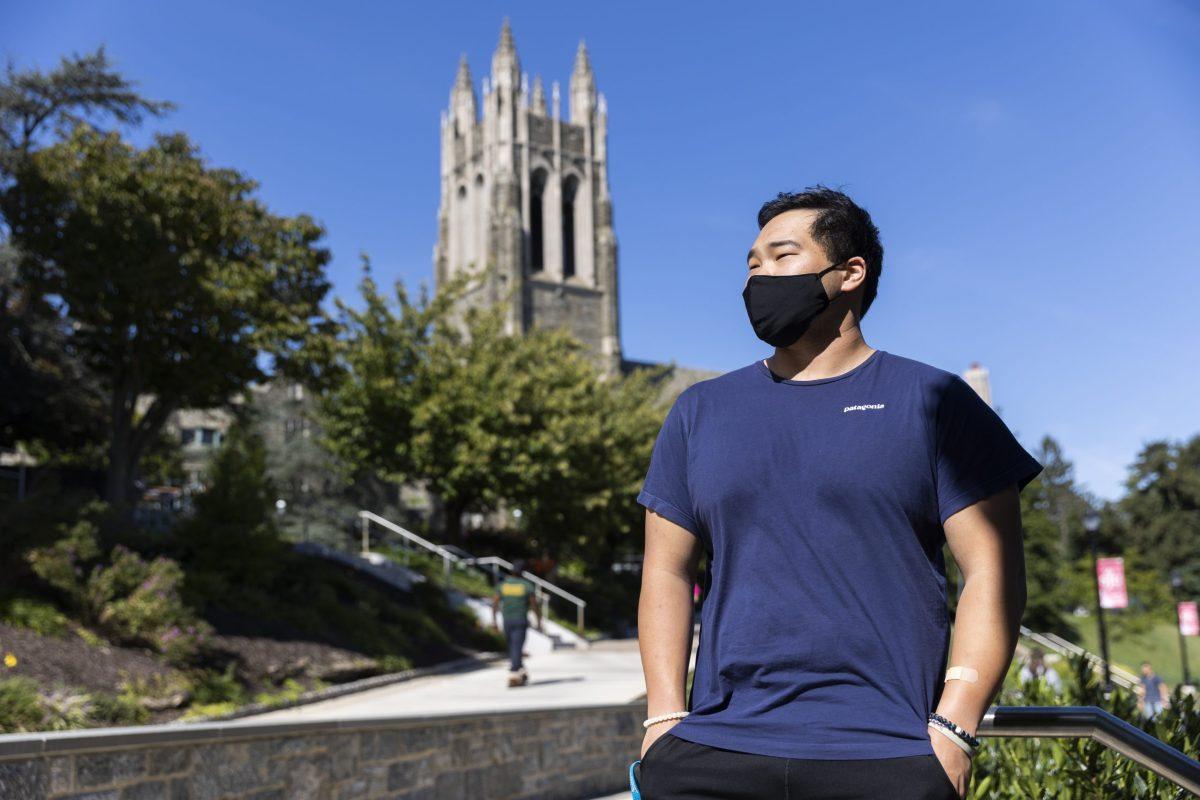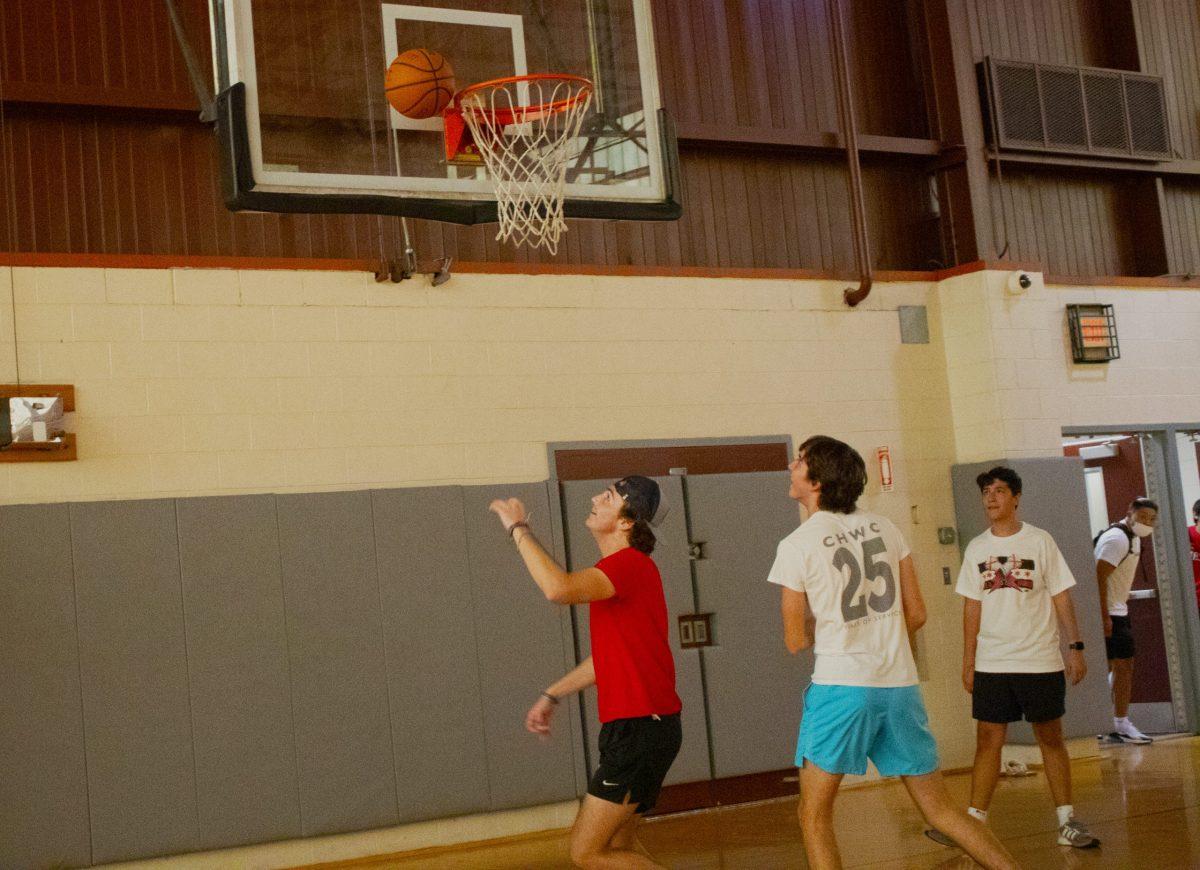Overbrook Educational Center is one of 53 Philadelphia schools that opened for hybrid learning this week after being shuttered for nearly a year due to the coronavirus pandemic.
That means Amanda Miller ’21, who is spending the last semester of her senior year student teaching, was finally able to meet her students in a physical classroom.
Since last month, Miller has worked online with kindergarten through second grade students in her special education class.
“It is completely different student teaching in a pandemic,” Miller said. “You’re dealing with a different way of teaching than we’ve discussed [in class].”
Miller is one of approximately 105 St. Joe’s students who are student teaching this semester according to Jim Osborne, the director of clinical experiences in the Office of Certification and Compliance.
While Miller said she hopes that she will “never have to teach in conditions like this again,” the experience also prepared her in ways she could not have imagined.
“I’m still doing all of the same stuff that I would be doing and I’m having to be more creative with it and figure out how to break it down even further to do it in such a different environment,” Miller said. “So in that way, I do think it’s beneficial. It’s just not easy.”
The need to be adaptable and the resilience the situation demands benefits St. Joe’s future educators, according to their professors.
“While the philosophy hasn’t changed, the need to individualize is much more paramount and has expanded to include the online learning needs of the students and the awareness that the environment is a teaching factor that needs to be considered,” said John Vacca, Ph.D., associate professor of teacher education.
Stacy Olitsky, Ph.D., associate professor of teacher education, said she thinks students are more prepared for what lies ahead because of the pandemic.
“They’ve had to be very flexible,” Olitsky said. “They’ve also had to think very specifically about pedagogy because you can no longer just do what’s been done before. There’s a lot of innovation happening. There’s a lot of creativity happening. There’s a lot of new ideas. There’s a high level of reflection, which is an excellent characteristic for teachers to have.”
In fact, Olitsky said the skills these student teachers acquired during the pandemic could make this generation of teachers stronger.
“If you are in a situation that is new, in a lot of ways you have to be more reflective on the impact of different practices and make changes accordingly,” Olitsky said. “That in itself is going to produce very strong dispositions for teaching.”
Bobbi Lawley ’20 was student teaching when the pandemic moved schools online last spring. She is now a full-time second grade special education teacher at The Philadelphia Charter School for Arts & Sciences in the Northwood neighborhood of Philadelphia. Lawley’s school has been virtual since she began her job in August 2020. It too, opened for hybrid learning this week.
Lawley said the experience gave her “a different way to think of teaching,” just as her professors predicted.
“From the very beginning, it was difficult for me to wrap my brain around how I could give my kids more support than the general education teachers can, but over Zoom,” Lawley said. “So we’ve incorporated breakout rooms, and I have meetings at the end of the day with just my kids where they work on their goals.”
Quinn Maguire ’21, a student teacher teaching kindergarteners at St. Thomas Aquinas School in South Philadelphia, said she thinks virtual education will continue to be “a part of the norm.” Like many of the city’s private and parochial schools, St. Thomas Aquinas has offered both in-person and online instruction, depending on what students chose, since school opened in fall 2020.
While Maguire, like most student teachers, said she prefers to be in person with her students, she is grateful for the exposure to teaching online. She has had to navigate her own challenges, and witnessed the ones her students experience as well.
“It’s hard when they’re online to control their environment in a way,” Maguire said. “A lot of the kids have siblings, so their siblings are also online doing class. When they come off mute to talk, it’s so loud in the background because you hear their siblings’ classes or their parents working or other distractions like the TV and such. There’s only so much you can do when you’re not really with them and they’re learning from their house.”
Carly Netting ’21, who is student teaching third grade at Smedley Elementary Mastery Charter School in the Frankford neighborhood of Philadelphia, was able to be in her physical classroom for the first time in mid-February, though her students remained online until this week.
“It was weird because all of the bulletin boards still said ‘Friday, March 13, 2020,’” Netting said. “They haven’t been back to the room since that day.”
Netting also has some students in the classroom and some online beginning this week.
“You have to tailor instruction to both groups of students,” Netting said. “Our school is just trying to figure out how best to do that because not every teacher has the technology that some schools have in order to perfect this, if there even is a way to perfect it. The biggest challenge is finding out how we can successfully manage the students online and the students in person so that they’re all on the same page.”
For many St. Joe’s student teachers, technology is a strength. Lilly Walsh ’20, a kindergarten teacher at Van Holten Primary School in New Jersey, said she felt prepared to be a full-time teacher during the pandemic after student teaching because of the classes she took as an early education major, especially Education 242: Technology Enhanced Curriculum and Instruction, which is required of all education majors.
“It was very interesting to see the difference of technical knowledge that I have compared to the teachers that were already teaching,” Walsh said. “[That course] really helped me be prepared for teaching in this pandemic. At first, it’s like, ‘Why are we taking a technology course? How often are we going to be using technology?’ But then all of a sudden a pandemic hits, and you’re using technology every single day.”
Walsh said she is grateful for the preparation she received from both St. Joe’s and from the pandemic.
“Reflecting on this journey so far, it’s been bumpy and curvy,” Walsh said. “But there’s challenges and there’s celebrations, which make it all so worth it.”











































